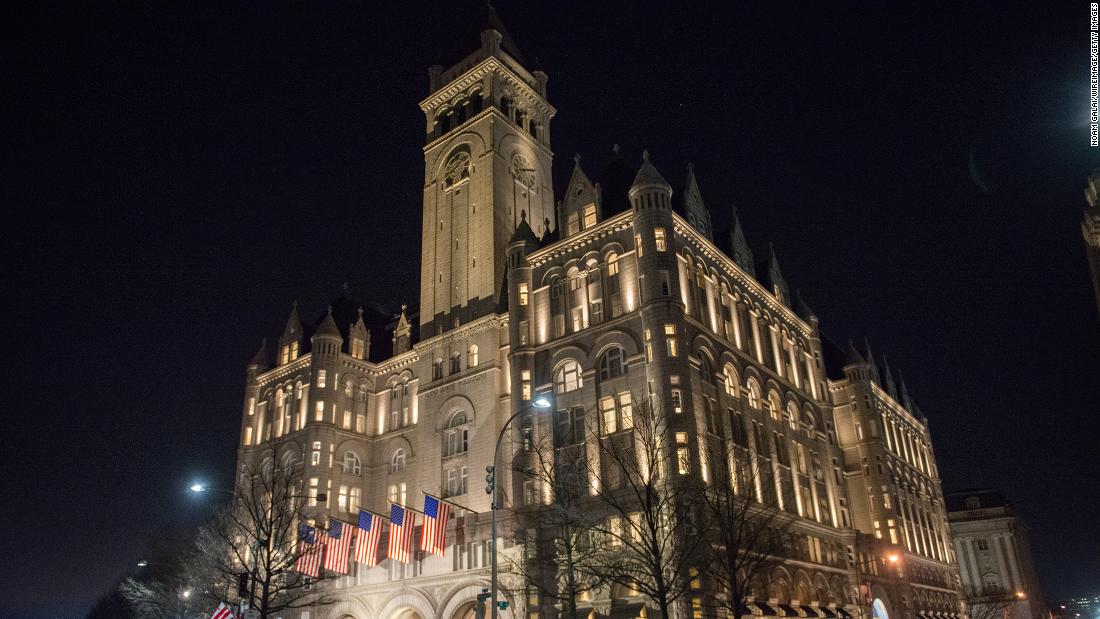
It's the latest effort by Justice Department attorneys to stop the suit, which claims that Trump is violating a constitutional clause banning presidents from accepting gifts or favors from foreign or domestic governments because of his stake in the Trump International Hotel in Washington.
If the appeal fails, the Trump Organization may be required to turn over an array of internal documents, potentially offering a window into the operation of the business.
The Trump International, on Pennsylvania Avenue within sight of the White House, is the favored destination for Trump and first lady Melania Trump when eating outside the White House, and it has become a gathering point for Trump supporters as well as for groups with business before the administration.
The Trump administration argues that the lawsuit is causing the President harm and would interfere with the separation of powers, according to court documents.
The suit was filed in 2017 by Maryland Attorney General Brian Frosh and District of Columbia Attorney General Karl Racine, who argue the Trump International Hotel's operations put nearby hotels and entertainment properties at a competitive disadvantage and that the hotel, which won its lease on a federally owned property before Trump's election, got special tax concessions.
A federal district judge allowed the state governments to pursue their lawsuit in July 2018 against Trump in his official capacity as President. The states later dropped the part of the lawsuit that went after him personally.
The judge allowed DC and Maryland to begin issuing subpoenas last year. Information requests were sent to many of Trump's private businesses, various federal agencies and 18 other unnamed entities that compete with the Trump International. While the subpoenas didn't ask for the President's personal tax returns, they do request tax documents from his businesses that could begin to fill out a picture of his own finances.
The Department of Justice claims that the case from the attorneys general is based on "a host of novel and fundamentally flawed constitutional premises" and the evidence-gathering process for the case would include "intrusive discovery into the President's personal financial affairs and the official actions of the administration," according to court documents.
The Justice Department appeal has halted the discovery process and put the case on hold until the appellate court rules.
No comments:
Post a Comment